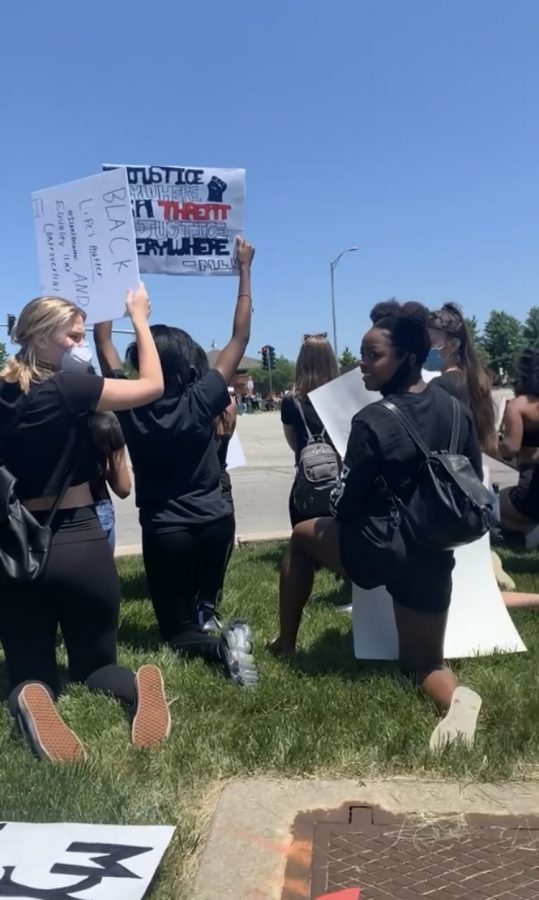Generation Z activism paves way
Plainfield teens gather along Route 59 in support of the Black Lives Matter movement in June 2020. Photo courtesy of Ruby Yepsen.
December 13, 2021
Generation Z, known for their grit and individuality has made activism a topic for the dinner table.
Young minds have always sought change. Names such as Ruby Bridges and Malala Yousafzai are recognized for modifying history with the strength of their message. Today’s teens have taken inspiration from the past leaders in social change, while educating themselves on current issues.
Many adolescents call themselves activists, warriors for social justice and political change.
“Students are discovering themselves as young adults,” Key Club sponsor Sarah Sicinski said.
Current activists continue to fight for many of the same issues as activists from decades ago. Today, the Black Lives Matter movement works to keep on with the message established by the Civil Rights movement beginning in the ‘40s.
“[Change for Advocates Group] is a group of teenagers who are passionate in activism and strive for diversity and change within our community,” said senior Tvisha Baxi, UNICEF Club and Student Council president. “I have seen them work personally with Mr. Draper and the school board to make progressive change in our education and community. They also encouraged other teenagers to call for change and join them in protests for Black Lives Matter.”
While causes of the past still remain relevant, new conversations prompt new movements. #MeToo took media by storm in 2006 after Tarana Brooke shared her story of sexual harassment, inspiring survivors around the world to open up about their stories with hashtags such as #YoTambien (me too) in Spanish and #QuellaVoltaChe (that time when) in Italian. Young activists are not afraid to speak up and support this cause and other causes in which they believe.
“It feels empowering to be a part of a new wave of activists,” KEY Club and ARK Club President junior Rohan Patel said. “I think the most important movements to people our age are movements towards racial and gender equality.”
Social media has helped build community around movements other than the #MeToo movement. Ever since social media has become part of everyday life, changemakers have taken to platforms to help rapidly spread messages.
“This quick flow of information allows our generation to stay connected and engaged with events happening around them,” Baxi said.
Younger generations, Millennials and Generation Z have grown up creating online profiles before even learning to drive. This allows access to a world of information, shaping the way that teenagers think and creating their worldview.
“Because information is easily accessible now through social media, our generation not only feels empowered, but also motivated to participate in activism or at least stay informed,” Baxi said.
Young activists have found a way to make their voice heard online in ways that cause real world change. High school student Sydney Helfand started a petition to pass the Preventing Animal Cruelty Act (PACT), making animal cruelty a federal felony. After 800,000 votes and government recognition, the law was passed.
“Signing petitions can be great to harness support and to show higher reps of our government the amount of people that support a specific call for change,” Baxi said.
However, there can be downsides to petitions. Since they are easy to sign, many people will sign the petition and move on instead of looking further into the cause.
“Petitions can also cause blind activism or oversimplify activism,” Baxi said.
As an increasing number of young people join activists in fighting for a cause, the united crowd grows.
“I have seen students wanting to make a change in the community and stand up for their beliefs, especially this past school year,” social worker Ashlee Wright said.
While no one can say for sure, many people believe that the future for social activism looks bright with the addition of younger, socially aware minds bringing new ways of change-making to the table.
“…with how quickly information travels in a virtual world, I do not see an end to activism,” Baxi said.








